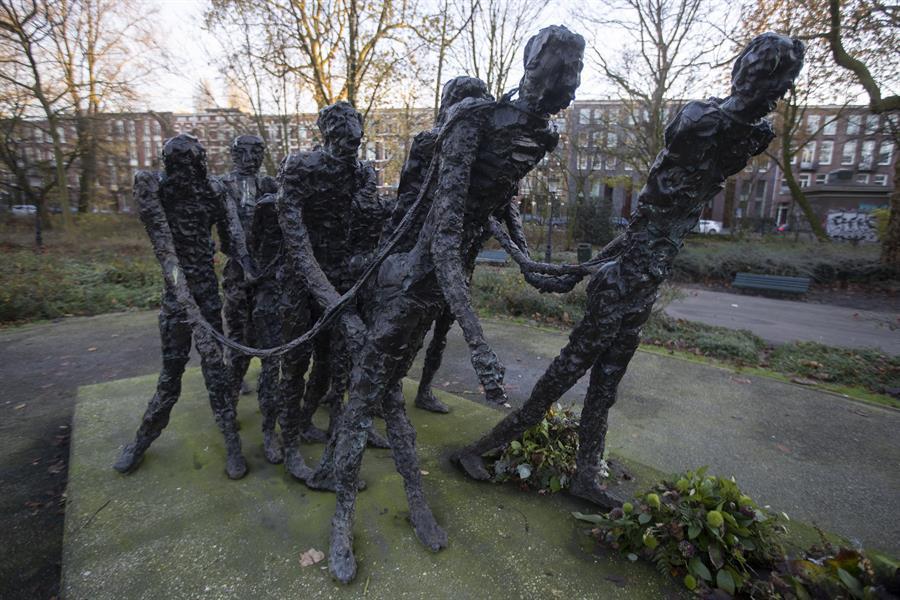
Amsterdam’s famed Rijksmuseum has unveiled plans for a landmark show next year about the Netherlands’ colonial role in slavery, saying it would tackle questions raised by the Black Lives Matter movement.
The “Slavery” exhibition will be the first major event on the sensitive subject of Dutch involvement in human trade across the Atlantic and Indian Oceans under one roof, museum officials said.
It comes as the Black Lives Matter protests in the United States are changing perceptions globally, and with the debate at home about the Netherlands’ own attitude to race and its colonial history.
The colonial past of the Netherlands had an “important role in laying the foundations for the present-day Netherlands,” Rijksmuseum director Taco Dibbits said at the exhibition’s launch event, held online due to coronavirus restrictions.
“In the colonial history slavery also has an important role and we felt that we should tell that story,” he said, adding “I think that Black Lives Matter certainly addresses many questions that are also addressed in the exhibition.”
During the height of its colonial empire in the 17th century, the Netherlands kept colonies in the Caribbean including Suriname and Curacao, in South Africa, as well as in the former Dutch East Indies in Asia, the modern-day Indonesia.
The exhibition, which opens next year in February, will tell the story of 10 people whose lives were intricately interwoven with slavery, from slaves themselves to slave and plantation owners to those who resisted the practice.
This included the story of a man born into slavery on a plantation in Suriname at the time it was under Dutch colonial rule and eventually dying as a slave there.
A central exhibit to illustrate the man’s story is a sugar cane juice boiling kettle, showing how slaves were forced to work day-and-night under “extreme severe conditions,” museum officials said.
Also in the exhibition are drawings of the same plantation, made for its young Dutch owner named Jonas Witsen, who inherited it but who had no intention of ever visiting there.
The Rijksmuseum exhibition was all about “history that has not left behind yet,” said Valika Smeulders, the Rijksmuseum’s head of history.